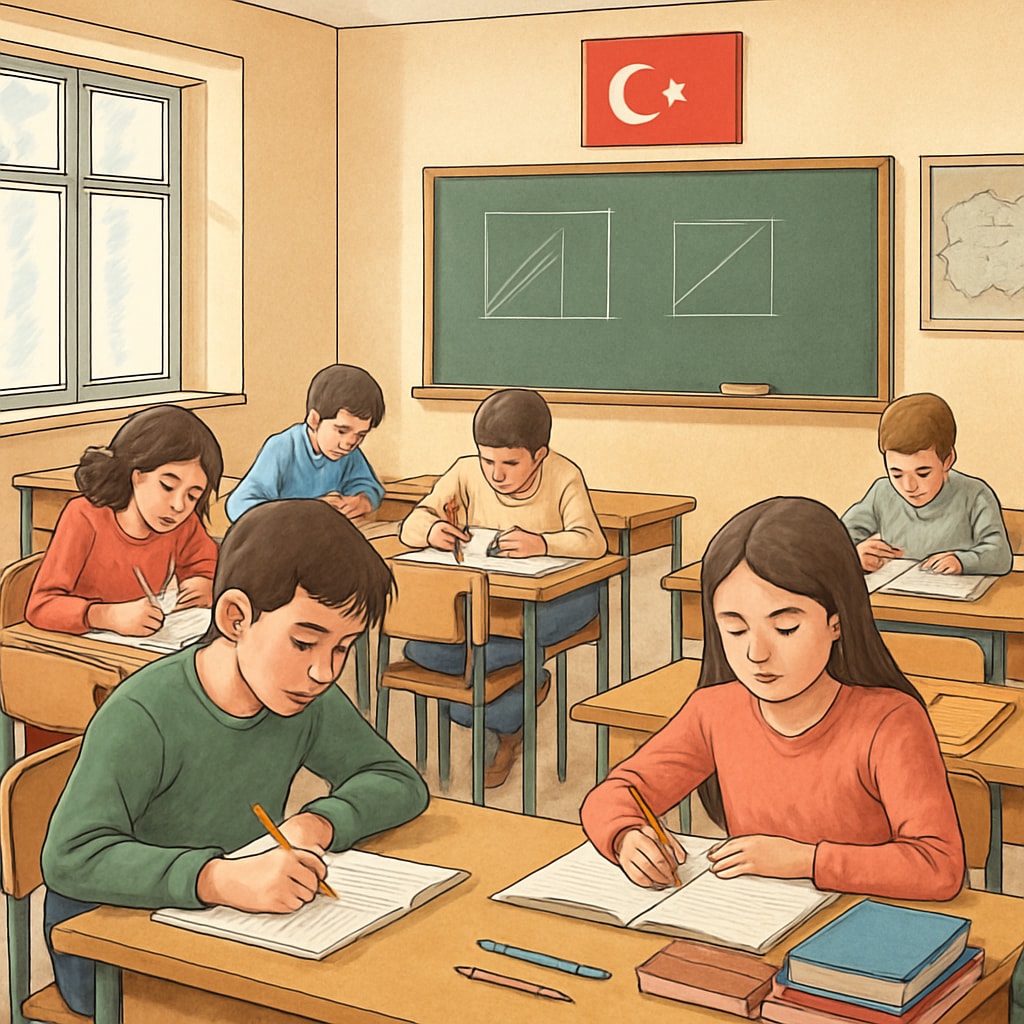Turkey’s education system heavily relies on centralized, exam-driven assessments that create intense pressure for students. In contrast, the United Kingdom’s A Levels system offers a more flexible and student-centered approach, fostering critical thinking and creativity. This article delves into the challenges of Turkey’s exam-oriented education system, compares it with the A Levels model, and explores potential reforms for a balanced and innovative educational future.
The Exam-Centric Nature of Turkey’s Education System
Turkey’s education system is deeply rooted in a centralized examination model. At key stages, students must take high-stakes national exams, such as the LGS (Entrance Exam for Secondary Education) and YKS (Higher Education Institutions Exam). These exams largely determine their academic and professional futures, placing extraordinary pressure on students from a young age. This approach narrows the focus of education to rote memorization and test preparation, sidelining critical thinking, creativity, and emotional development.
Statistics reveal the impact of this pressure. For instance, a significant portion of Turkish students report experiencing stress and anxiety due to exams. The competitive nature of these assessments often leads to disparities, as students from well-resourced backgrounds tend to perform better than their peers with fewer resources. As a result, the system perpetuates inequality while discouraging a love for lifelong learning.

The A Levels System: A Flexible and Student-Centered Approach
In contrast, the United Kingdom’s A Levels model provides a starkly different approach to secondary education. A Levels allow students to choose a small number of subjects (typically three to four) to study in-depth during their final two years of high school. This flexibility enables students to tailor their education according to their interests and career aspirations. In addition, A Levels emphasize analytical skills, independent research, and critical thinking over rote memorization.
The assessment methods for A Levels also reflect these priorities. Students are evaluated through a combination of coursework, practical assessments, and exams, depending on the subject. This multi-faceted approach not only reduces exam pressure but also prepares students for the diverse challenges of higher education and the modern workforce.
The outcomes of this system are evident. A Levels graduates are often better equipped with the problem-solving and communication skills required in competitive global environments. Furthermore, the system is designed to be inclusive, accommodating students with different learning styles and strengths.

Key Differences and Lessons for Turkey
The stark differences between Turkey’s exam-driven system and the UK’s A Levels model highlight several lessons that Turkey could adopt:
- Flexibility in Curriculum: Allowing students to choose subjects of interest, as in A Levels, can enhance engagement and motivation.
- Diversified Assessment Methods: Incorporating coursework and practical evaluations alongside exams can reduce stress and provide a more holistic measure of student abilities.
- Focus on Critical Thinking: Prioritizing analytical and creative skills over rote memorization equips students for modern challenges.
However, implementing such reforms would require systemic changes, including teacher training, curriculum redesign, and investment in resources. Policymakers must also address structural inequalities to ensure that all students benefit from these reforms.
A Vision for a Balanced Education Future
Turkey’s reliance on an exam-oriented education system has created significant challenges, including widespread student stress and limited skill development. Meanwhile, the UK’s A Levels system demonstrates the benefits of a more flexible and student-focused approach. By embracing reforms inspired by the A Levels model, Turkey has the potential to create an education system that balances academic rigor with creativity, critical thinking, and emotional well-being.
Education is not merely about passing exams; it is about preparing students for life’s complexities. A more balanced approach could unlock the potential of millions of Turkish students, paving the way for a brighter and more innovative future.
Readability guidance: This article uses short paragraphs and lists to improve clarity. Transition words like “however,” “in contrast,” and “therefore” are incorporated throughout to ensure a smooth reading experience. Long sentences and passive voice are minimized for better readability.


